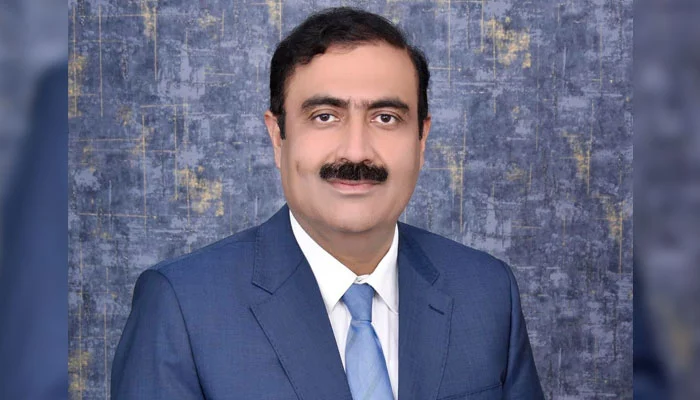The Drug Regulatory Authority of Pakistan (DRAP) has urged the country’s pharmaceutical manufacturers to begin local vaccine production, highlighting the urgency of self-reliance as international support winds down.
Speaking at a scientific session hosted by the Pakistan Pharmaceutical Manufacturers Association (PPMA) North Zone, DRAP’s newly appointed CEO, Dr. Obaidullah, warned that by 2031, the Global Alliance for Vaccines and Immunization (GAVI) and UNICEF would cease providing vaccines for Pakistan’s Expanded Program on Immunization (EPI). He stressed that Pakistan must develop its own vaccine production capabilities to sustain its immunization program.
The Urgent Need for Local Vaccine Production
Dr. Obaidullah revealed that currently, 60% of the vaccines used in Pakistan’s EPI are provided by GAVI. With this assistance set to end, the country will face the financial burden of importing vaccines, which is neither sustainable nor viable. “We don’t even manufacture a single vaccine for our children. This has to change,” he emphasized.
The event was attended by key figures from the pharmaceutical and medical communities, including former DRAP chiefs Asim Rauf and Shaikh Akhtar Hussain, PPMA North Zone President Dr. Saad Akram, Prof. Javed Akram of the Pakistan Society of Internal Medicine (PSIM), and industry leaders Usman Khalid Waheed, Mian Khalid Misbah, Arshad Mehmood, and Prof. Huma Cheema.
Pharmaceutical Reforms and Industry Growth
Discussing DRAP’s Vision 2030 for the pharmaceutical sector, Dr. Obaidullah announced a Rs218 million budget for digitizing regulatory processes. He emphasized the need for:
- Advanced technology adoption
- Compliance with Good Manufacturing Practices (GMP)
- Equity in the pharmaceutical industry
- Increasing exports to $1 billion
However, he acknowledged that Pakistan’s transition from conventional pharmaceuticals to biological products, biosimilars, and vaccines has been slow. He urged urgent action to establish local biotechnology plants for both human and veterinary medicine.
Challenges in Bioequivalence Studies
Prof. Javed Akram pointed out the shortcomings of bioequivalence (BE) studies in Pakistan, criticizing local BE centers for failing to meet international standards. While conducting BE studies abroad is costly, he argued that establishing an internationally accredited BE center within Pakistan is crucial for increasing pharmaceutical exports.
He also criticized the industry’s reliance on imported active pharmaceutical ingredients (APIs), stating, “Our pharmaceutical sector is more of a packaging industry. We need true biotechnology plants to manufacture biological products locally.”
Regulatory and Ethical Concerns
Addressing ethical concerns in the pharmaceutical industry, Prof. Akram urged companies to support scientific conferences and research discussions rather than focusing on incentivizing prescriptions. He emphasized the importance of knowledge-sharing platforms for physicians and surgeons.
Former DRAP chief Asim Rauf clarified misconceptions about WHO’s role in accrediting BE centers. He revealed that Pakistan is developing a state-of-the-art BE center at the National University of Medical Sciences (NUMS), which will support the local pharmaceutical industry.
Meanwhile, former DRAP chief Shaikh Akhtar Hussain warned against potential exploitation of price deregulation. He urged pharmaceutical companies to balance affordability with business growth, as experts debated whether deregulating non-essential drugs would attract investments or create market instability.
Future of Pakistan’s Pharmaceutical Industry
Industry leaders emphasized that Pakistan’s future lies in biological products. Usman Khalid Waheed, CEO of Ferozsons Laboratories Limited, highlighted the potential for producing biosimilars and exporting prefilled insulin to meet global demand.
Prof. Huma Cheema called for stronger regulations for biological products and biosimilars, warning that without clear legal frameworks, Pakistan will struggle to compete in the international pharmaceutical market.
Aligning with Global Standards
Experts debated whether achieving WHO qualification for DRAP would automatically ensure GMP compliance for all Pakistani pharmaceutical manufacturers. Regulatory officials discussed ways to bring DRAP in line with international best practices to enhance the quality and safety of local medicines.
A Roadmap for the Future
Reaffirming his commitment to reform, Dr. Obaidullah stressed that DRAP must evolve from being a regulatory body focused on packaging oversight to a facilitator of high-value pharmaceutical research and manufacturing. He called for collaboration between the government and industry leaders to achieve self-reliance in vaccine production and strengthen Pakistan’s position in the global pharmaceutical market.
With GAVI and UNICEF’s support set to end by 2031, the time for action is now.




+ There are no comments
Add yours